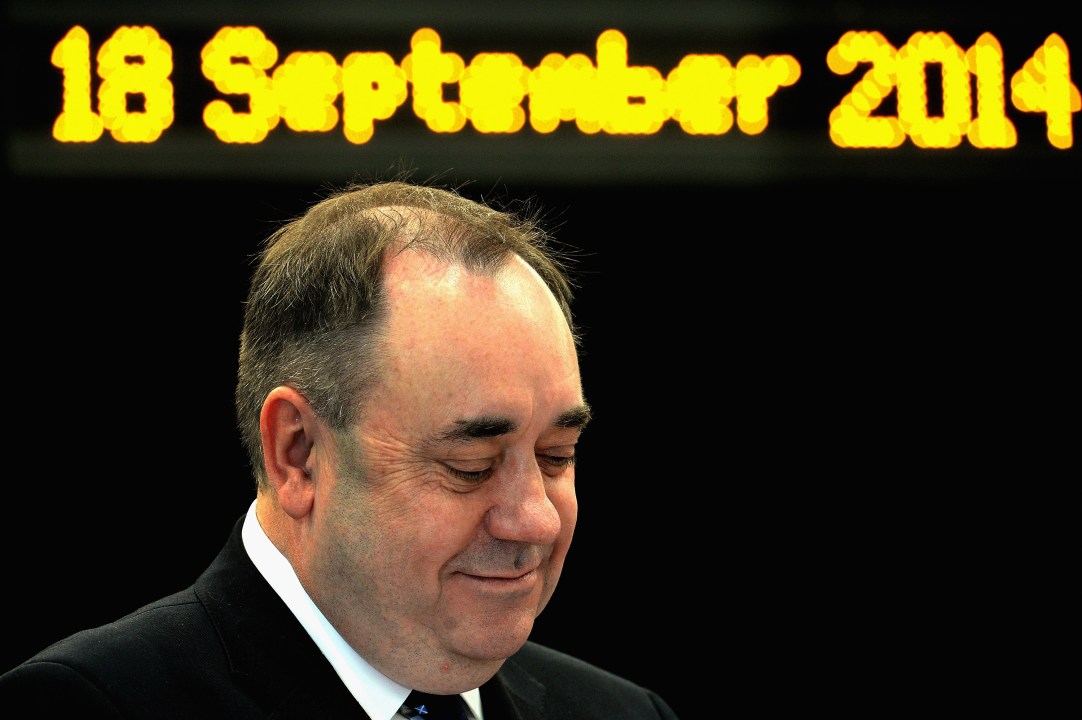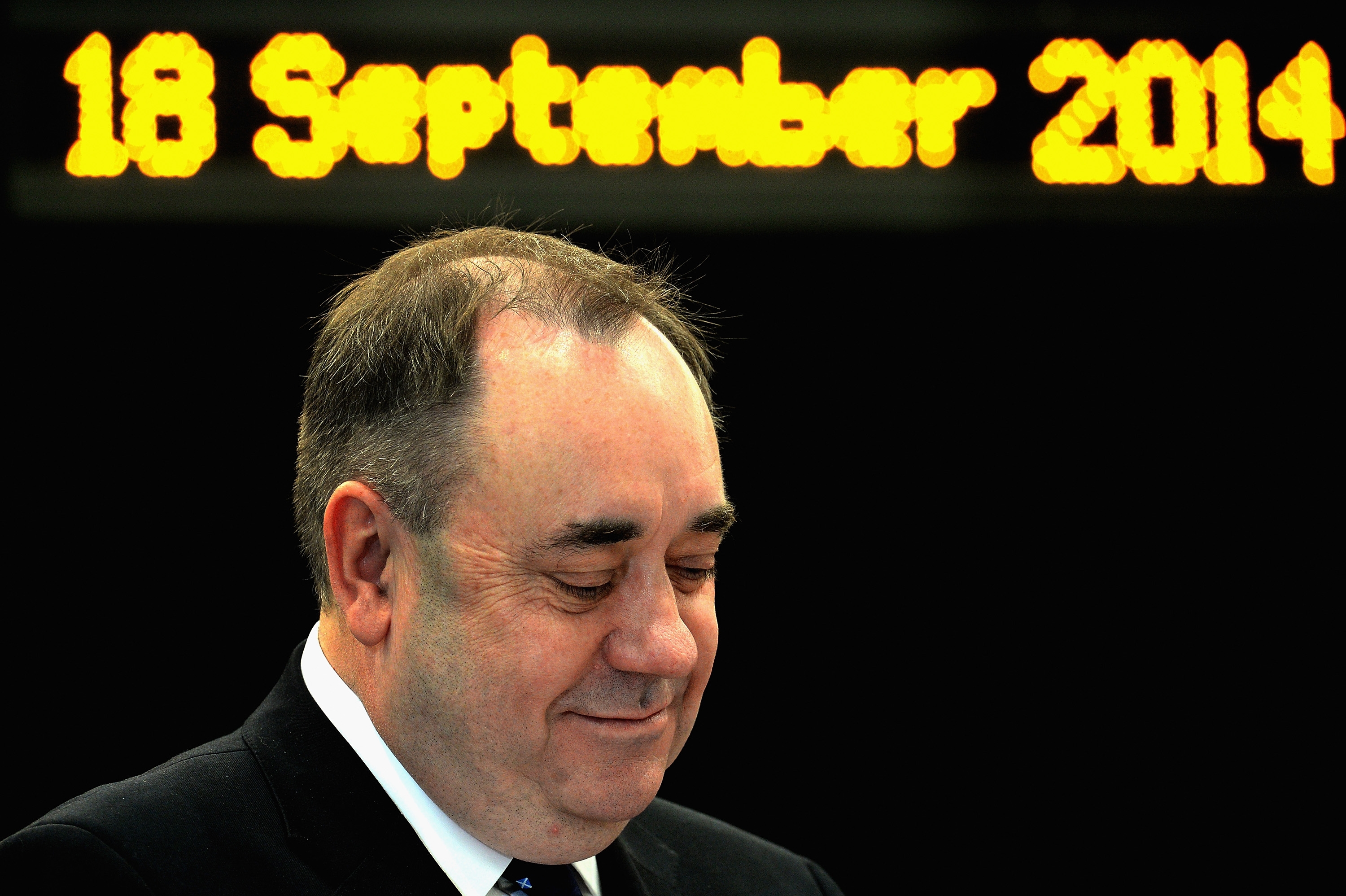Until now, television coverage of Scotland’s independence referendum has largely been confined to news bulletins and specialist, late night, political programmes unwatched by most of the general public. In that sense, then, the campaign has hardly actually begun. It has not yet found a mass audience. But it will and moving the campaign to prime-time will change it too.
That process began last night as STV broadcast the first episode of a three part documentary titled Road to Referendum (viewers in England can watch it here). It offered a potted political and social history of Scotland from 1945 to 1974. (The next episode will focus on the Thatcher Dragon and the final part, one supposes, upon Holyrood’s short history.)
There was nothing in last night’s programme to disappoint the SNP or the wider nationalist movement. On the contrary Road to Referendum, written and presented by Iain Macwhirter, could easily be seen – at least in this first episode – as an endorsement of the nationalist view of Scottish post-war history.
If stories matter in politics – and I think they do – then one of the largest problems facing Unionists is their lack of a narrative. What future are Unionists selling? By contrast – and as last night’s programme demonstrated – the nationalists have it easy.
The story is a simple one. It goes a little like this: In 1945, Britain celebrated its greatest victory. The country was united and the idea the Union might one day be threatened was unthinkable. As prosperity returned in the 1950s, many of the working classes had never had it so good. Scotland was still a conservative country. Make that a Conservative country, albeit one that relied, in part, upon the votes of bigoted working-class protestants. Things would get better. The 1960s arrived (though not until the second half of the decade). Modernity! Revolution! Pop music! And with it came the first stirrings of a national reawakening. Looking back, the Suez crisis marked the end of one song and the first hearing of a new one. Britain was in decline. Scotland – a new, more radical Scotland – was different. UCS. Billy Connolly. 7:84. And oil. Oil above all else. Scotland’s Oil. Scotland’s destiny. A national assembly? Aye. But why not a proper parliament? The SNP spooked a divided, duplicitous Labour party. Home Rule, dormant since the first years of the century, was back on the agenda. Even the Tories kinda, sorta, sometimes supported it. Scotland was stirring: political devolution – as opposed to mere administrative devolution – was the least a resurgent nation deserved. And all this before the Iron Lady strode upon the scene! Destiny calling. A growing up. A journey….
Now that’s a partial presentation but not by any means an unreasonable one. The ties that bind are weaker now than once they were. Road to Referendum was an artfully constructed programme selling a very particular version of Scottish post-war history. Nothing wrong with that. Indeed, how could it be otherwise? It was good television too.
But its effect was to agree with and reinforce an important part of the SNP story. Namely that Scotland has been on a fifty year journey whose logical, even, perhaps, inevitable, destination is independence (of one sort or another). Moreover, even if you don’t want to stay on board all the way you will agree we left Status Quo Central long ago and the question is only how far down the line you wish to travel. There’s no turning back, you know. It’s a happy, cheery story.
Macwhirter’s documentary, which relied on some splendid archive footage and talking heid interviews with many of the usual suspects, was artfully constructed. For instance, images of the civil rights movement in the United States and the assassination of Martin Luther King were juxtaposed with Winnie Ewing’s stunning by-election triumph in Hamilton. True, these events happened at much the same time and Macwhirter was not quite so crude as to suggest they were of comparable international significance. The times they were a-changin’ that’s all. But you get the point anyway. A nation on the march and with the better guys in the ascendancy.
There was a dig at the BBC too for its decision to film an adaptation of Douglas Hurd’s thriller Scotch on the Rocks featuring Tartan terrorists and all that jazz. Scaremongering, you understand. More significant than just a fictional flight of fancy. Never, ever, underestimate the high deviousness and low cunning of the British state. You know what I’m talking about. No, there’s no need to say so in so many words.
And it’s Scotland’s oil, remember. There’s Malcolm Rifkind popping up to say it’s kind of selfish to want to hog it all for ourselves. Selfish? Here’s Margo McDonald challenging anyone to spend five minutes in her Govan constituency (“an awful place” in her words) and then try and persuade her it’s “selfish” to want to keep the oil revenues north of the Tweed. Point made. Next, please.
These are stories rarely heard in London. But this view of Scottish post-war history is powerful stuff. Even if you disagree with some of the particulars, you’re likely to concede that a good deal of Macwhirter’s thesis has some merit. And it’s the kind of story, the type of narrative, that can be tricky to counter in ways that don’t seem to diminish Scotland or make it sound like a basket-case country populated by dolts and assorted other types of glaikit zoomers.
Which is why I don’t think the present opinion polls matter very much. The campaign is only now shifting to prime time. As I say, (at least so far) nationalists should be delighted with Road to Referendum (there’s an accompanying book too) and Unionists should be troubled that they’ve not got a counter-narrative to sell themselves. Or, rather, they’ve nothing that’s quite as attractive or powerful as the idea of a great national journey. Details? Those can wait laddie. Never mind the detail, feel the great sweep of history.
And that leaves this question for Unionists: where’s the Union taking us? Perhaps David Cameron can answer that on Friday when he makes a rare foray north of the border.








Comments